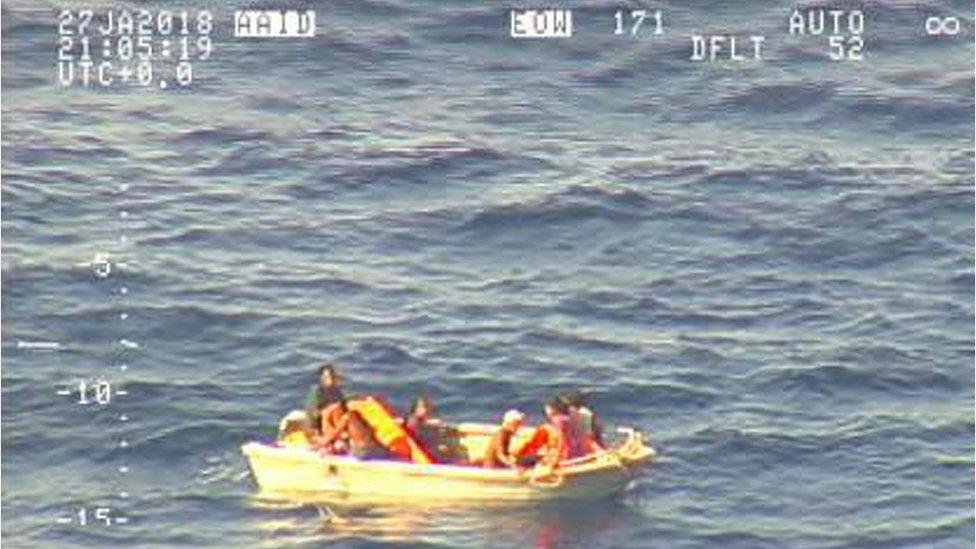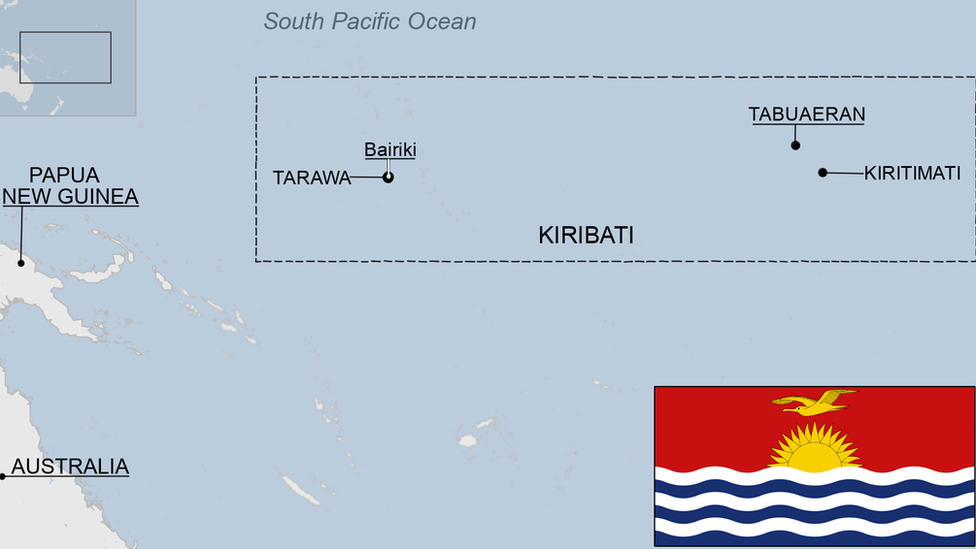Overloaded Kiribati ferry where 95 died had drunk crew
- Published

A file picture of the MV Butiraoi in the harbour
A ferry that sank off the Pacific nation of Kiribati - killing 95 people - was overloaded, had a drunken crew, and was not allowed to carry passengers at sea, an inquiry has found.
Of the 102 people aboard the MV Butiraoi last year, only five passengers and two crew survived.
After the boat sank, it was eight days before the alarm was raised, and most victims died at sea from hunger, dehydration and hypothermia.
One woman died while giving birth.
The 17m (57ft) catamaran departed Nonouti island on 18 January last year for a routine two-day trip to the capital, Tarawa. It was due to cover 260km (160 miles) of Pacific waters in the archipelago country.
But it set off without notifying authorities, and did not issue a distress signal when it began to fall apart hours after leaving shore.
It did not have a working or activated radio beacon - meaning it was days before anyone realised the ferry was missing.
When the alarm was finally raised, an international search effort got under way, with aircraft from New Zealand, Australia and the US scanning the ocean.
On 27 January, a New Zealand military plane found one of the ferry's aluminium boats carrying seven survivors, among them a 14-year old girl.
The inquiry was ordered by the Kiribati government, external. It found:
The ferry - which was also carrying 30 tonnes of copra (dried coconut) - was not licensed to carry passengers at sea
The master, who died in the accident, "took no notice" of weather warnings
The boat broke apart because of "recent groundings" and poor maintenance
Of the two life rafts, one got a puncture, and the other suffered a "failed" floor
There were not enough lifejackets for all passengers
There was widespread use of alcohol by the master and crew during working hours
The use of alcohol "gave every drunken crew [member] the feeling of grandeur and power to make decisions alone".
The inquiry made a number of recommendations, including a national standard on boat building; a ban on alcohol for crew during working hours; and a strengthened code of ethics.

The aluminium boat was spotted from the air and rescued
- Published26 January 2024

- Published2 February 2018
